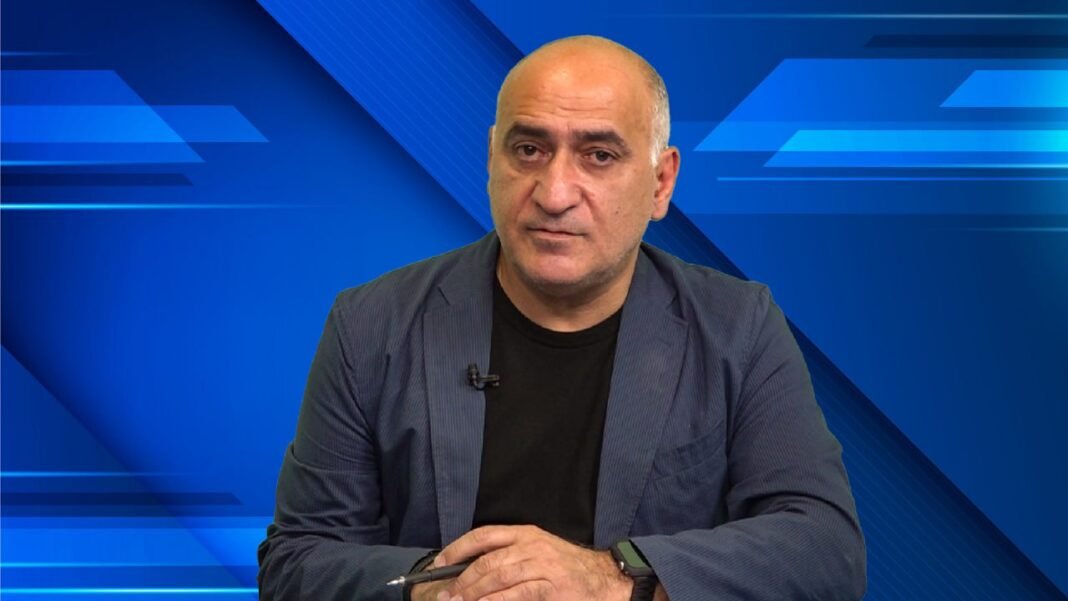YEREVAN September 6, 2025
Armenian political activist Vladimir Poghosyan has sharply criticized Prime Minister Nikol Pashinyan’s recent string of foreign visits, arguing that they amount to “demolition of the Armenian state” rather than a coherent strategy. His comments came during an appearance on the Noyan Tapan program in Russian.
Pashinyan has spent the past weeks moving from Washington to Shanghai, Beijing and most recently Tokyo, while also speaking about strengthening ties with Europe. Poghosyan said this pattern reflects not balanced diplomacy but contradictory impulses. Armenia’s presence at the Shanghai Cooperation Organization (SCO) military parade, he argued, placed Yerevan in a bloc of authoritarian states while its government simultaneously talks of integration with the EU.
A central point of criticism was the decision to sign a communiqué with Pakistan shortly after India had suffered casualties in clashes linked to Islamabad. Poghosyan said the move alienated New Delhi, Armenia’s key defense partner, and made India’s firm stance inside the SCO predictable. “It would be naïve to think Pakistan would support Armenia against Azerbaijan’s interests,” he noted.
The politician described the SCO and BRICS as dominated by resource-driven economies with high corruption and little innovation, warning that Armenia cannot modernize inside such frameworks.
“These are commodity economies with authoritarian reflexes,” he said.
Poghosyan also addressed Russia’s domestic debate, denouncing ideologue Alexander Dugin’s calls for migrants to assimilate by adopting Orthodoxy and Russia’s “cultural code.” He labeled the approach xenophobic, arguing that Moscow should focus instead on reviving its own folk traditions among Russian youth.
Turning to domestic security, Poghosyan criticized the handling of the case of Ashkhen Arakelyan, a Foreign Ministry staffer arrested in July on charges of spying for Azerbaijan. He called her arrest “a mistake,” saying security services should have run a long-term counterintelligence operation by turning the suspect and feeding controlled information. He also urged mandatory reporting of any foreign contacts by diplomats and tighter counter-surveillance around Armenian missions abroad.
Finally, Poghosyan attacked Pashinyan’s governance style, citing the prime minister’s assertion that “the government is me.” He argued that dissent inside the cabinet should be seen as professional responsibility, not disloyalty.
“Remaining in office after being told to ‘agree or leave’ reduces ministers to chairs and salaries,” he said.
According to Poghosyan, Armenia’s current trajectory risks alienating its few reliable partners abroad while undermining professional standards in state institutions at home.


